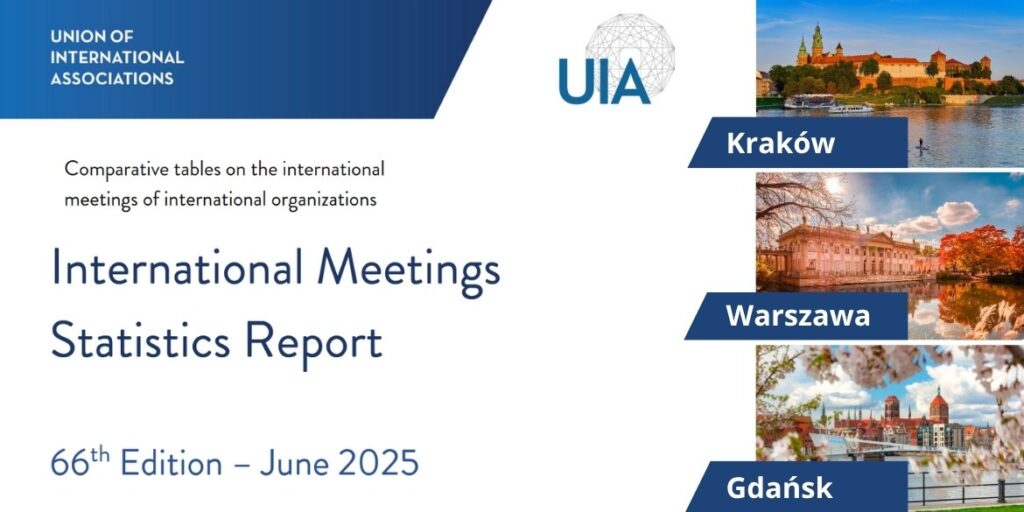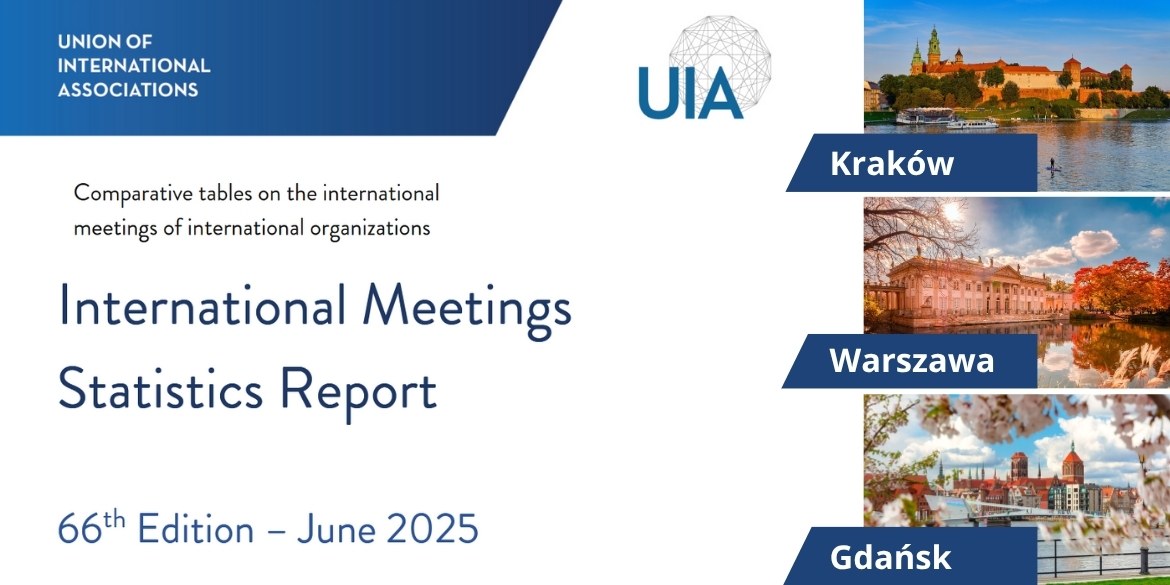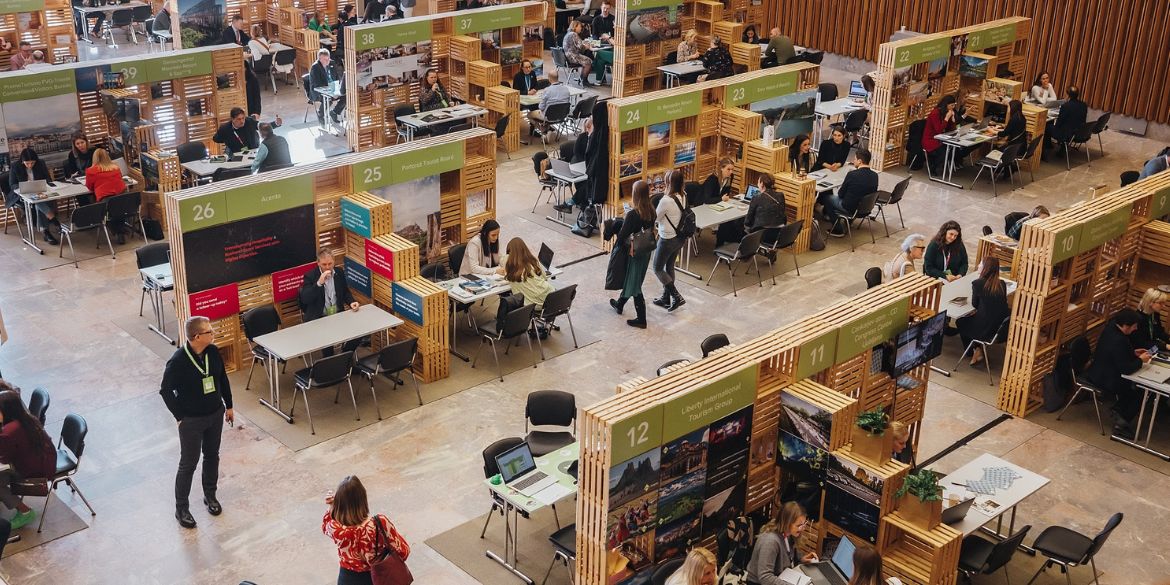Poland maintains its global position, with strong performances by Kraków and Warsaw. According to the 2024 edition of the International Meetings Statistics Report by the Union of International Associations (UIA), Poland retained its 21st position worldwide in terms of the number of international association meetings hosted. This continued presence in the top global rankings reflects the country’s consistent attractiveness for international associations and congress organisers.
Top Performing Cities in Poland
Kraków achieved a remarkable 31st place globally, hosting 55 association meetings, a significant rise from 42nd place and 32 meetings the previous year. This confirms Kraków’s position as Poland’s leading destination for international association events.
Warsaw ranked 48th in the world with 33 meetings, equal to major global cities such as Chicago and Edinburgh. This demonstrates Warsaw’s strong and stable role as a capital city well-integrated into the international meetings ecosystem.
Other notable cities include:
- Gdańsk – 13 meetings
- Wrocław – 9 meetings
- Poznań – 7 meetings
- Katowice and Łódź – 5 meetings each
Wider National Footprint
Smaller but increasingly active cities also contributed to Poland’s overall presence in the report:
- 2 meetings each in: Lublin, Białystok, Kościelisko, Sopot, Bystra
- 1 meeting in: Bydgoszcz, Cieszyn, Gdynia, Kielce, Krzyżowa, Łomża, Szczyrk
This broad geographical spread highlights a healthy decentralisation of the Polish meetings industry, demonstrating that smaller cities are investing in infrastructure and bidding capacity to welcome international events.
UIA Methodology and Context
The UIA’s report is based on verified data from the UIA database, which feeds into the International Congress Calendar and the Yearbook of International Organisations. It is one of the most respected sources for meetings industry statistics, tracking. Only events that simultaneously meet four strict criteria are included in the ranking:
- Duration: at least 3 days
- Number of participants: a minimum of 300 people
- International scope: participants from at least 5 countries
- Foreign attendance: at least 40% of attendees from abroad
Additionally, the data must be sourced from reliable and verified sources, ensuring the high quality of the rankings.

Discover more:




